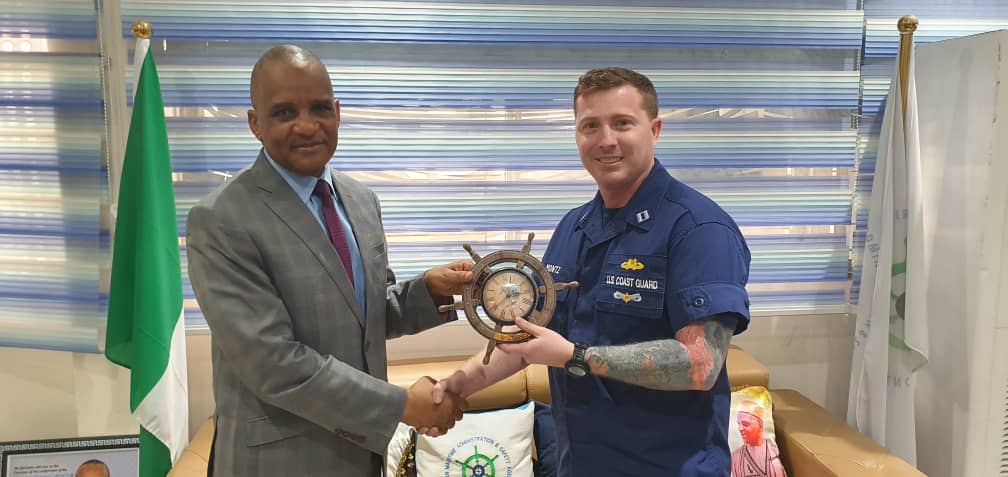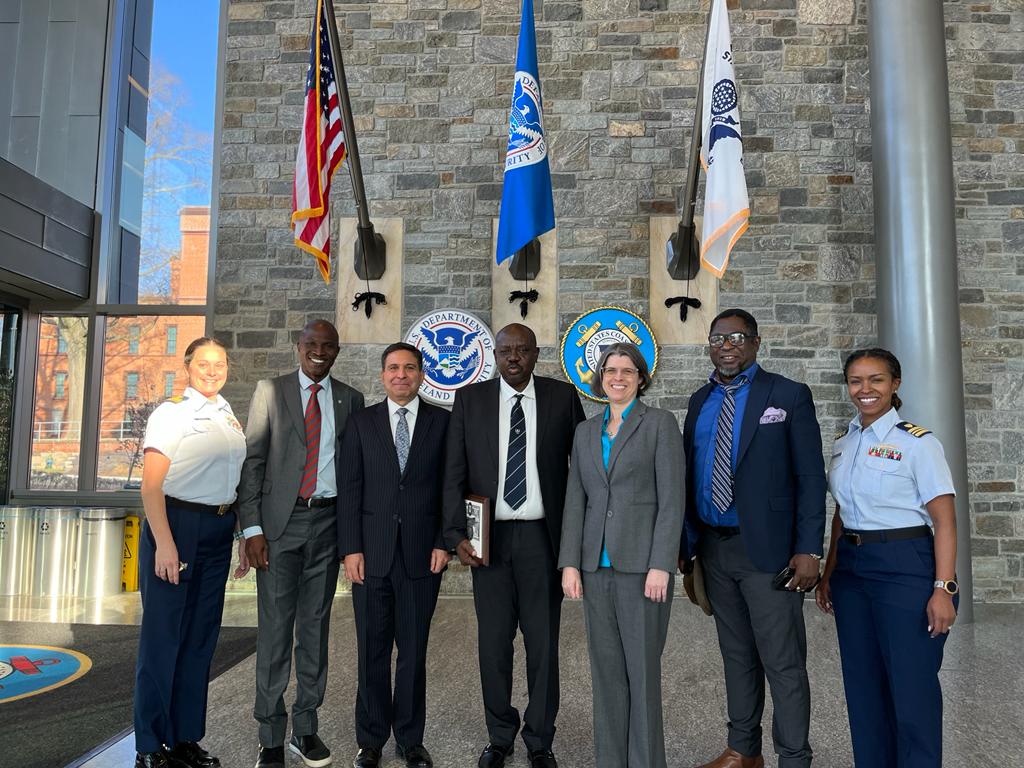USCG to collaborate with NIMASA for removal of CoE on American-bound vessels

The United States Coast Guard (USCG) has proposed a comprehensive three-year plan to partner with the Nigerian Maritime Administration and Safety Agency (NIMASA) aimed at lifting the Condition of Entry (CoE) imposed on vessels bound for America from Nigeria.
This proposition came to light during a peer review session held at the USCG headquarters in Washington DC, where Cdr. Juliet Hudson unveiled the proposal to a delegation from NIMASA.
Hudson emphasised the initiation of a bi-annual assessment to evaluate the compliance level of Nigerian ports with the International Ship and Port Facility Security (ISPS) Code, a critical component of maritime security measures.
She stressed that this assessment, conducted jointly with NIMASA, would be instrumental in updating the Port Advisory Security Portal, culminating in a decision to completely lift the CoE.

In her words, “We will work with NIMASA to review the compliance level of Ports in Nigeria with the provisions of the ISPS Code. This will be done twice a year to enable us to update the Port Advisory Security Portal in the White House after which a decision will be taken to completely lift the Condition of Entry.
“We commend NIMASA for ISPS implementation and please deliver this award to your DG,” she remarked.
In a reciprocal gesture, Dr. Bashir Jamoh, the Director General of NIMASA, hosted Lt. Benjamin Montz, a USCG Advisor, and his delegation. Jamoh reiterated NIMASA’s unwavering commitment to enhancing safety and security within Nigerian waters, underscoring the agency’s mandate to bolster the Blue Economy.
Acknowledging the invaluable support from the American government in advancing ISPC implementation in Nigeria, Jamoh underscored the imperative of extending such assistance to other countries within the Gulf of Guinea (GoG) region.
“Nigeria is a major stakeholder in the Gulf of Guinea; you will agree with me that most of the activities in the region revolve around Nigeria. We acknowledge the support you have been giving us; we request that you extend it to other countries in the GoG, as a chain is only as strong as its weakest link, and all credit goes to the United States Government,” said Jamoh.
Furthermore, Jamoh appealed to the USCG for assistance in personnel training, highlighting the importance of conducting a comprehensive gap analysis to tailor training programs effectively.
In response, Lt. Benjamin Montz reiterated the USCG’s commitment to supporting NIMASA, emphasising their joint efforts to enhance safety and security within Nigeria’s maritime sector, particularly in port operations.
NIMASA, as the designated authority responsible for implementing the ISPS facility code in Nigeria, has consistently collaborated with relevant stakeholders to fulfill its mandate.
The partnership with the USCG underscores a concerted effort towards ensuring safer and more secure waterways, not only in Nigeria but also across the Gulf of Guinea.







